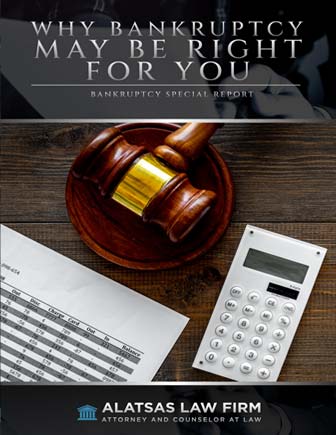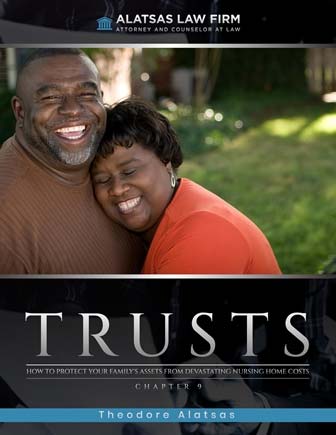Imagine working a lifetime to accumulate wealth, only to have it threatened by unforeseen legal challenges. Asset protection is an essential strategy for safeguarding your financial assets against such threats. Nestled in the heart of New York, Brooklyn and Queens present unique challenges and opportunities for residents seeking to protect their assets. The purpose of this article is to guide you through the ins and outs of asset protection services offered in Brooklyn and Queens. As the skyline of Brooklyn hints at a complex tapestry of legal frameworks, understanding why you need an expert to navigate these laws becomes crucial. Asset protection lawyers specialize in creating barriers against potential creditors and litigations, ensuring that your assets remain yours. Whether it's consultation, strategy development, or the establishment of legal entities, an attorney can provide a shield for your financial fortress. Delve into the world of experienced asset protection attorneys, explore common protective strategies, and understand how they fit into your broader estate planning goals. By examining the costs and benefits, this article will help you make an informed decision when selecting a lawyer in Brooklyn to secure your financial future. 
What is asset protection?
Asset protection is essential for safeguarding wealth from potential legal threats. It helps minimize risks like creditor claims, estate taxes, and probate complications. In Brooklyn, individuals and businesses can access various asset protection services tailored to their specific needs.
Key Services Available
Some of the key services available include:
- Irrevocable Trusts: These trusts help shield assets from creditors while preserving wealth for future generations.
- Family Asset Transfers: Strategic transfers that facilitate smooth wealth transition within families.
- Business Succession Planning: Ensures continuity and protection of business interests through careful planning.
- Limited Liability Company (LLC) Formation: Separates personal and business liabilities, reducing personal risk exposure.
- Medicaid Asset Protection Trusts (MAPTs): A vital strategy for those looking to qualify for Medicaid while protecting their assets.
These services provide robust frameworks to protect financial assets effectively, making them indispensable for anyone looking to fortify their financial future in Brooklyn.
Understanding How Asset Protection Can Help You
Asset protection is an important strategy for keeping your wealth safe from potential legal threats. Basically, it involves setting up legal barriers to protect your financial assets from creditors and other risks. Laws and regulations are crucial in this process as they provide the necessary guidelines and frameworks to safeguard one's wealth.
Common Types of Creditor Claims
When it comes to creditor claims, individuals often face several common types:
- Personal Debt: Unsecured loans or credit card debts can lead creditors to pursue personal assets if obligations aren't met.
- Litigation: Lawsuits, whether from personal disputes or business conflicts, may result in significant financial liabilities.
- Business Liabilities: Business owners face risks such as breach of contract or employee-related claims that can spill over into personal finances if assets are not adequately protected.
Understanding these risks emphasizes the importance of taking proactive measures to protect your assets. By using legal tools like trusts and LLCs strategically, individuals can effectively shield their wealth from such threats. This ensures that their financial legacy remains secure, regardless of unexpected legal challenges.
The Role of Asset Protection Attorneys
Asset protection attorneys play a crucial role in creating customized strategies to protect your wealth from potential risks. With their knowledge and experience, they ensure that your financial assets are safe from creditor claims, lawsuits, and other legal threats.
Areas of Expertise
These professionals specialize in various areas such as:
- Exemption laws
- Bankruptcy
- Tax implications
- Trust and estate planning
This specialization allows them to design personalized plans that align with your goals and risk tolerance.
Why You Need an Asset Protection Attorney
Finding the right asset protection lawyer in Brooklyn can make all the difference. Here are some reasons why you should consider hiring one:
- Expertise: Asset protection attorneys have in-depth knowledge of the laws and regulations governing wealth protection. They can navigate complex legal issues that may arise in your specific situation.
- Tailored Strategies: Every individual's financial circumstances are unique. An experienced attorney will assess your assets, liabilities, and overall financial picture to develop a strategy that suits your needs.
- Proactive Approach: It's always better to be proactive rather than reactive when it comes to protecting your wealth. By working with an attorney early on, you can implement preventive measures that deter potential threats before they materialize.
Whether you're dealing with business interests in Queens or personal assets in Brooklyn, a competent asset protection attorney is essential for maintaining financial security.
How to Find the Right Asset Protection Lawyer
Here are some tips to help you find a qualified attorney:
- Specialization: Look for attorneys who focus specifically on asset protection. Their experience in this niche ensures they are up-to-date with the latest legal frameworks and strategies.
- Reputation: Seek recommendations from friends or colleagues who have used similar services. Online reviews and testimonials can also provide insight into an attorney's effectiveness.
- Consultation Services: Many Brooklyn asset protection lawyers offer initial consultations. Use this opportunity to assess their understanding of your needs and their ability to provide personalized solutions.
Key Strategies for Asset Protection Planning
When it comes to safeguarding your wealth, employing strategic measures is essential. Here are some key strategies to consider:
- Irrevocable trusts: stand out as a powerful tool by transferring asset ownership to the trust itself, shielding them from creditors. This means that once assets are placed in an irrevocable trust, they are no longer considered part of your estate, offering robust protection.
- Limited Liability Companies (LLCs): provide another layer of security, especially for business owners. By forming an LLC, you can effectively separate personal assets from business liabilities. This separation ensures that personal wealth isn't put at risk due to business debts or legal actions.
- Equity stripping: can add an additional defense against potential creditors. This strategy involves encumbering assets with debt to reduce the equity available to creditors in a lawsuit. By doing so, it limits what creditors can claim if they pursue legal action.
Combining these strategies—irrevocable trusts, LLCs, and equity stripping—creates a comprehensive asset protection plan designed to withstand various financial threats. Each method has its nuances and advantages, making it crucial to consult with experts who can tailor these tools to your specific needs.
Evaluating Costs and Benefits of Asset Protection Planning
Investing in asset protection can be a significant financial commitment at the beginning. Initial costs may include legal fees for consultations, document drafting, and entity formation. However, these are often seen as a worthwhile investment in securing your financial future.
The real value lies in the long-term financial security that these strategies offer. By safeguarding assets from potential creditors and lawsuits, individuals can enjoy substantial protection against unforeseen legal challenges. This proactive approach not only shields assets but also ensures continuity of wealth across generations.
One effective strategy for achieving this is through an asset protection trust plan, which offers substantial benefits in terms of asset protection and estate planning.
Another major benefit is the peace of mind that comes from knowing your assets are well-protected. With a robust asset protection plan, you can focus on growing your wealth without constantly worrying about potential external threats.
When weighing the costs against the benefits, many find the sense of security and stability far outweighs the initial expenditure. This makes asset protection an essential component of sound financial planning.
Implementing Asset Protection Plans Successfully
Crafting a robust asset protection plan involves more than just drawing up documents; it's about ensuring those documents are strategically sound and legally binding. Working with an experienced asset protection attorney is crucial to guarantee that all legal documents are properly drafted and executed. These professionals bring an understanding of complex legal structures, ensuring your assets are shielded effectively.
When it comes to safeguarding your business interests from potential litigation or disputes, proactive measures are essential. Here are a few practical tips:
- Establish a Limited Liability Company (LLC): By forming an LLC, you can separate personal assets from business risks, reducing the impact of any potential claims against your business.
- Use Irrevocable Trusts: This strategy helps in transferring ownership of certain assets, thus protecting them from creditor claims.
- Consider New York Transfer on Death Deeds: This approach can simplify estate planning and avoid probate efficiently, ensuring smooth property transfer to beneficiaries. For more information on this topic, you can refer to this article.
- Draft Clear Contracts: Ensure all business agreements are thoroughly reviewed and clearly outline terms to minimize the risk of misunderstandings leading to disputes.
- Regular Legal Audits: Periodically reviewing your asset protection strategies with your attorney can help identify vulnerabilities in your plan.
Incorporating these strategies not only fortifies your financial defenses but also positions you to navigate unforeseen challenges with confidence. Additionally, as a business owner, it's vital to engage in estate planning to protect your assets and plan for the future effectively.
Case Studies: Real-Life Examples of Successful Asset Protection Strategies in Brooklyn
Exploring real-life examples can provide valuable insights into how asset protection strategies are applied effectively. Here are a few successful asset protection examples in Brooklyn:
1. Small Business Owner Safeguarding Personal Assets
A local café owner in Queens operated under a sole proprietorship, exposing personal assets to business liabilities. By forming a Limited Liability Company (LLC), they separated personal and business assets. The LLC structure provided legal protection, ensuring that personal assets were shielded if the business faced lawsuits or debts.
2. Family Wealth Preservation through Trusts
A Brooklyn family with substantial real estate holdings established an irrevocable trust to manage their properties. This strategy insulated their wealth from potential creditor claims while allowing for efficient wealth transfer to the next generation without probate.
3. Medical Professional Mitigating Occupational Risks
A physician in Staten Island, concerned about malpractice suits, utilized an asset protection plan by setting up an iPUG, an irrevocable trust that secured his assets, but allowed her to have control over those assets during her lifetime. This setup aligned legal structures with personal assets, minimizing exposure and protecting the family’s financial future from occupational liabilities.
These case studies highlight how tailored asset protection strategies can effectively shield wealth from external threats, underscoring the importance of proactive planning. For instance, how asset protection saved a family business is a compelling example of this principle in action.
Conclusion
Taking proactive steps towards securing your assets in Brooklyn can significantly reduce the risks of financial loss and legal challenges. Seeking professional guidance from experienced asset protection attorneys, like the team at Alatsas Law Firm, ensures that strategies are tailored to individual needs, providing robust protection against potential threats. Embracing asset protection measures not only safeguards your wealth but also offers peace of mind, allowing you to focus on building a secure future. Whether through trusts, LLCs, or other legal structures, investing in asset protection is an essential strategy in today's complex financial landscape. Schedule your free consultation today.

.png)







